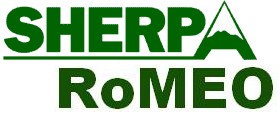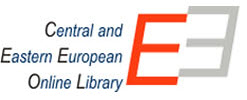THE ROLE OF THE SCHOOL COUNSELLOR IN SCHOOL–COMMUNITY COLLABORATION: THE CASE OF SLOVENIA
DOI:
https://doi.org/10.5937/IJCRSEE1701019GKeywords:
school counselling service, community, parents, co-ordination, consultation, partnershipAbstract
The article presents some essential characteristics of collaboration between the school counselling service and individuals or institutions in the community. The role of school counselling in Slovenia is not limited merely to counselling and providing direct assistance to students with learning and their personal development. Rather, it includes the encouragement of all participants in the educational process to create adequate learning environments. The role, however, should also be understood in broader terms as organizational and content collaboration with external environments, institutions and individuals in the community. The authors begin by proposing some starting points for collaboration between the school counselling service and the local community and, in the second part of the article, they move on to the findings of their empirical research study, conducted on a representative sample of school counsellors working in Slovenian primary schools. The results prove the need for collaboration between the school counselling service and different institutions or individuals in the community. The authors primarily focus on examining the obstacles and drawbacks to the collaboration, while they simultaneously highlight examples of good practice that enable constructive collaboration, without which schools and school-based counselling would not be able to contribute to educational processes. The described examples demonstrate that collaboration between schools/school counsellors and institutions/individuals in the community is crucial to solving the problems that students and their families face.
Downloads
References
Bezić, T. (2008). Razvoj in spremljanje delovanja mreže svetovalnih služb [The development and the observation of the operating of the counselling services' net]. Sodobna pedagogika, 59(2), 60–80. http://www.sodobna-pedagogika.net/arhiv/2008-59125/stevilka-2-april/c12
Bryan, J., & Henry, L. (2008). Strengths-based partnerships: A school-family-community partnership approach to empowering students. Professional School Counseling, 12(2), 149-156. https://doi.org/10.5330/PSC.n.2010-12.149
Bryan, J., & Holcomb-McCoy, C. (2007). An examination of school counselor involvement in school-family –community partnerships. Professional School Counseling, 10(5), 441 – 454, https://doi.org/10.5330/prsc.10.5.f266j386342r57g6
Chen-Hayes, S. F., Ockerman, M. S., & Mason, E. C. M. (2014). 101 solutions for school counselors and leaders in challenging times. Thousand Oaks, CA: Corwin, https://doi.org/10.4135/9781483345932
Čačinovič Vogrinčič, G. (1999). Svetovalno delo s starši, svetovalno delo z družinami [Counseling services for parents, counseling services for families]. In M. Resman, J. Bečaj, T. Bezić, G. Čačinovič Vogrinčič, & J. Musek, Svetovalno delo v vrtcih,osnovnih in srednjih šolah [Counseling services in preschools, elementary and secondary schools] (pp. 175–191). Ljubljana: Zavod Republike Slovenije za šolstvo.
Davis, T. E. (2014). Exploring school counseling. Cengage Learning. https://goo.gl/OWH4ky
Epstein, J. L. (1995). School/family/community partnerships. Phi delta kappan, 76(9), 701-712. http://search.proquest.com/openview/9e3a9e802f80705150dceec414b8ed1c/1?pq-origsite=gscholar&cbl=41842
Epstein, J., & Van Voorhis, F. (2010). School counselors‘ roles in developing partnerships with families and communities for student success. Professional School Counseling, 14(1), 1-14. https://doi.org/10.5330/prsc.14.1.m6070358408g9227
Griffin, D., & Steen, S. (2010). School-family-community partnerships: Applying Epstein's theory of the six types of involvement to school counselor practice. Professional School Counseling, 13(4), 218-226. https://doi.org/10.5330/PSC.n.2010-13.218
Hočevar, A., Kovač Šebart, M., & Mažgon, J. (2014). The availability and use of drugs in Slovenian primary schools and in vicinities close to schools. Hrvatska revija za rehabilitacijska istraživanja, 50(1), 26-35. http://hrcak.srce.hr/124768
Hočevar, A., Šebart, M. K., & Štefanc, D. (2013). Curriculum planning and the concept of participation in the Reggio Emilia pedagogical approach. European Early Childhood Education Research Journal, 21(4), 476-488. https://doi.org/10.1080/1350293X.2013.845437
Kalin, J., Resman, M., Šteh, B., Mrvar, P., Govekar-Okoliš, M., Mažgon, J., & Zuljan, M. V. (2009). Izzivi in smernice kakovostnega sodelovanja med šolo in starši. [Challenges and guidelines of quality cooperation between school and parents]. Znanstvena založba Filozofske fakultete.
Pečjak, S., & Košir, K. (2012). Šolsko psihološko svetovanje [Psychology counseling in schools]. Ljubljana: Filozofska fakulteta.
Programske smernice. Svetovalno delo v osnovnih šolah [Program guidelines. Counseling services in primary schools]. (2008). Ljubljana: Zavod Republike Slovenije za šolstvo.
Razvoj in spremljanje delovanja mreže svetovalnih služb (Poročilo o RA projektu) [The development and the observation of the operating of the counselling services' net (RA project report)]. (2007). Ljubljana: Zavod Republike Slovenije za šolstvo.
Resman, M. (1999). Pojem in karakteristike šolskega svetovanja [The concept and characteristics of school counseling]. In M. Resman, J. Bečaj, T. Bezić, G. Čačinovič Vogrinčič, & J. Musek, Svetovalno delo v vrtcih, osnovnih in srednjih šolah [Counseling services in preschools, elementary and secondary schools] (pp. 67–84). Ljubljana: Zavod Republike Slovenije za šolstvo.
Sagadin, J. (1993). Poglavja iz metodologije pedagoškega raziskovanja [Selected chapters from methodology of educational research]. Ljubljana: Zavod Republike Slovenije za šolstvo in šport.
Sheridan, S. M., Napolitano, S. A., & Swearer, S. M. (2002). Best practices in school-community partnerships. In A. Thomas, & J. Grimes (Eds.), Best practices in school psychology IV (pp. 321-336). Bethesda, MD: National Association of School Psychologists.
Šebart, M. K. (2015). How to Evaluate and Judge When the Moral-Educational Dimension of Instruction Is Concerned?. Review of European studies, 7(11), 138–146. http://dx.doi.org/10.5539/res.v7n11p138
Šteh, B., Kalin, J., & Gregorčič Mrvar, P. (2015). Sodelovanje med osnovnimi šolami in skupnostjo s primeri dobrih praks [Collaboration between elementary schools and the community with examples of good practice]. Sodobna pedagogika, 66(4), 26–44. http://www.sodobna-pedagogika.net/arhiv/2015-66132/stevilka-4-december/c3
Thompson, R. A. (2012). Professional school counseling. Best practice for working in the schools. New York, London: Routledge.
Vidmar, T. (2015). Perspectives of relations between school and parents from the middle ages to the reformation. Pedagogika, 120(4), 102–115. https://doi.org/10.15823/p.2015.041
Vogrinc, J., & Krek, J. (2012). Delovanje svetovalne službe [Functioning of counseling services]. Ljubljana: Pedagoška fakulteta. Retrieved February 12, from http://pefprints.pef.uni-lj.si/1188/1/Vogrinc_Krek_Delovanje_svetovalne.pdf
Walsh, M. E., & DePaul, G. (2011). The essential role of school-community partnerships in school counseling. Handbook of school counseling, 765-783. Taylor & Francis.
Published
How to Cite
Issue
Section
License
Copyright (c) 2017

This work is licensed under a Creative Commons Attribution-NonCommercial-NoDerivatives 4.0 International License.



























